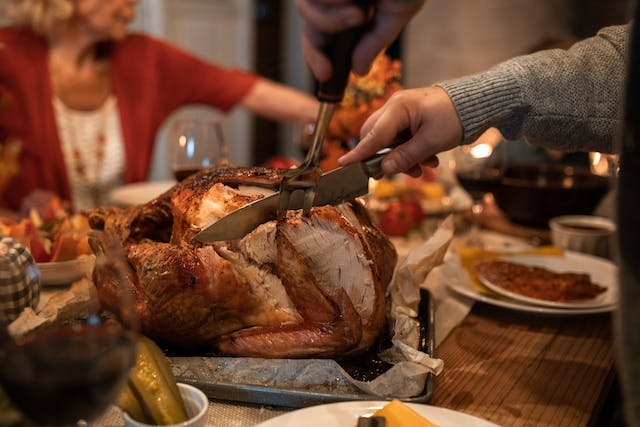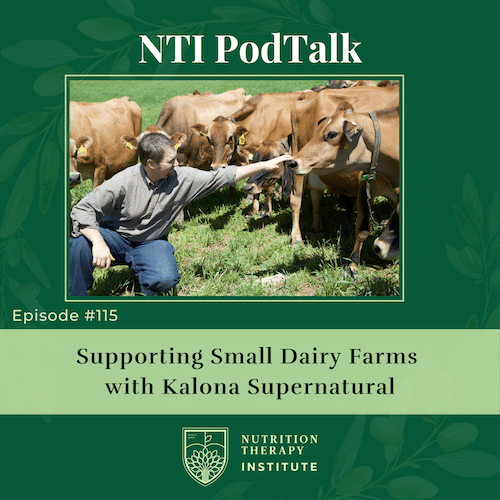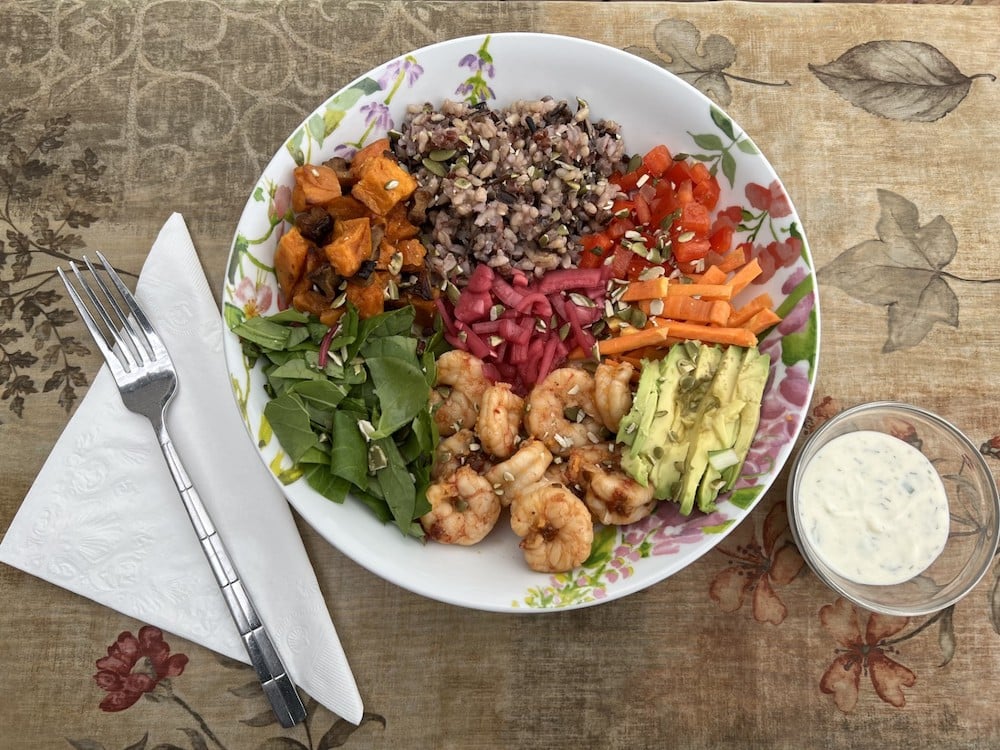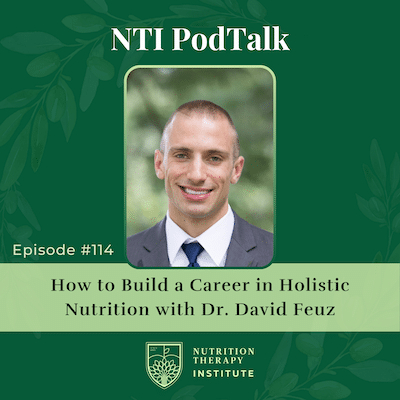
Share this post!
Now that flakes are falling on paths and children’s tongues alike, the holidays are just around the corner. Yet, what is meant to be a beautiful time for reunion and celebration can sometimes be a point of anxiety or even exclusion for a certain population— those with autoimmunity.
If you or a loved one have an autoimmune condition, you are not alone. If you are choosing to support your condition through nutrition, the Christmas dinner menu might seem incompatible with your needs. Thankfully, there are several ways you can celebrate the holidays with your loved ones without having to sacrifice your health.
What is Autoimmunity?
Autoimmunity is a disease or condition in which a person’s immune system produces antibodies that attack healthy cells as if they were foreign, pathogenic cells. Some diseases target certain organs and some attack multiple organs or cell types. The most common autoimmune diseases are rheumatoid arthritis, Crohn’s disease, Hashimoto’s and Graves’ disease.
Many factors can contribute to developing an autoimmune disease. Possible environmental factors can include eating a highly inflammatory diet, stress, having other health conditions, or exposure to chemicals, cigarette smoke, and certain infections.
Genetics, ethnicity, and gender can also increase susceptibility to developing an autoimmune condition. Women are much more likely to develop autoimmunity than men and certain ethnicities tend to develop certain types over others. Those of Hispanic, Latino, and African American descent are more likely to develop lupus while Caucasians tend to develop diseases that affect the muscles.
In the early stages of an autoimmune disease, a person may experience a low-grade fever, muscle aches, gut pain, swelling, fatigue, or dizziness. If you have any questions about whether you have one of these conditions, it is important to consult a medical doctor for further testing.
Inflammatory Foods
Though each body responds to foods uniquely, certain foods tend to be more inflammatory.
Gluten in the small intestine is immediately attacked by the immune system of a person with Celiac disease. However, it can also create gaps in the gut lining for many others, allowing for food particles to “leak” into the blood from the GI tract. With autoimmune conditions, immune systems can begin to attack those “homeless” food particles.
Other foods tend to incite an immune response. For example, the processing and pasteurization process for conventional dairy can do this, as well as nightshade vegetables, processed sugars, and food additives.
Goitrogens – vegetables including broccoli, brussels sprouts, and cauliflower – can affect thyroid function. For those who suffer from thyroid-based autoimmune diseases such as Graves’ and Hashimoto’s, these vegetables may be worth avoiding.
Here is a list of some common foods that tend to prompt an inflammatory reaction:
- Gluten
- Eggs
- Nightshade vegetables – eggplant, peppers, tomatoes
- Goitrogens – brussels sprouts, broccoli, cauliflower
- Pasteurized dairy
- Coffee
- Alcohol
- Food additives
- Processed sugars + artificial sweeteners
Already overwhelmed? Since every person is unique, some suggest going through an elimination diet, in which a person eliminates inflammatory foods, then adds each back one by one to see if there is a reaction. This can help target which specific foods exacerbate symptoms without avoiding all listed foods unnecessarily.
Holistic health practitioners promote the use of several different diet protocols to mitigate chronic inflammation. Each of these – including the Mediterranean diet, the Autoimmune Paleo Diet (AIP), or others – eliminate inflammatory foods to some degree and replace them with anti-inflammatory foods.
All need more research for efficacy, yet there is some research that the paleo diet and its more rigorous autoimmune paleo (AIP) diet can be helpful in reducing inflammation, especially for people with thyroid conditions like Graves’ disease and Hashimoto’s disease. In a systematic review studying the efficacy of the paleo diet for those with autoimmune conditions, people who followed the diet had lower antibodies common to thyroid autoimmune diseases. In another study, those who followed the autoimmune paleo diet and had Hashimoto’s (an underactive thyroid) reported a better overall quality of life, based on the Health-Related Quality of Life assessment, likely due to their lower inflammatory markers.
Regardless of which road you choose to take for your health, it is important to consult a licensed healthcare practitioner before engaging in a therapeutic diet.
READ MORE >>> Coffee is Good for You. Coffee is Bad for You.
Anti-Inflammatory Foods
Though it may seem like there are so many foods to potentially avoid, there are many more that can be allies in decreasing inflammation in the body. For instance, certain vegetables, fruits, herbs, and spices contain anti-inflammatory substances called polyphenols. Spices that are derived from a seed or chili pepper can be inflammatory due to presence of Capsaicin, a chemical compound that can cause a burning effect on tissue. Fatty fish contain anti-inflammatory omega-3 fatty acids, which not only lower inflammation but can also support brain, skin, and heart health. Supporting gut health through probiotics can support conditions that directly affect the gut, as well as our overall health. For those experiencing an autoimmune condition, consuming these foods can be supportive of wellness goals:
- Omega-3 fatty acids – fatty fish (salmon, mackerel, sardines, and anchovies)
- Root vegetables
- Leafy greens
- Fresh fruit
- Probiotic-rich foods (to support gut health)
- Minimally processed meat (best to prioritize wild-caught fish and organic, grass-fed, meat)
- Herbs and spices (except for those derived from a seed or chili pepper) – oregano, rosemary, thyme, sage, garlic, cinnamon, ginger and more [insert link to spice blogs]
- Vinegar (without added sugar)
- Green and black tea (3 – 4 cups daily can provide health benefits)
- Bone broth
Holiday Meal Substitutes

With all these considerations, how can we find a middle ground for holiday dinners? You may be surprised to find that there are many nutritious substitutes to enjoy with less discomfort. Though each family may have their own traditional foods they bake, broil, and brew for the holidays, here are some anti-inflammatory substitutes for meal staples.
- Fats
- Olive oil, ghee (clarified butter), and avocado oil for savory dishes
- Coconut oil for dessert dishes
- Dairy
- Full-fat coconut, cashew, or almond milk
- A1 cow milk or unpasteurized milk
- Goat cheese
- Carbohydrates
- Mashed sweet potatoes or root vegetables with coconut oil and cashew/coconut milk
- Stir-fried green beans with garlic, olive oil, salt and pepper
- Grain-free tortillas
- Gluten-free flour
- Gluten-free crackers
- Protein
- Turkey with anti-inflammatory herbs and spices (oregano, rosemary, garlic, sage, thyme)
- Organic and grass-fed beef
- Organic poultry (without hormones) – Eat Wild is a great resource to find pasture-raised turkeys
Autoimmune-Friendly Recipes
Does food sound a little more palatable again? Check out these anti-inflammatory holiday recipes to continue to whet your appetite:
If you ever find yourself worrying about how to cook for a friend or are at a loss for how to bring something you can eat that all can enjoy, consider these recipes and substitutes as principles to carry into your kitchen. If you want to go a step further, NTI also provides training for those interested in holistic nutrition strategies to help achieve immune system wellness goals.
Your attentiveness to your needs will bless your family and friends with true joy this holiday season.
Try a Course – Commitment-Free
Are you curious about NTI’s courses but are not ready to commit just yet? We have options for you! We offer the option to apply as a Single Course Enrollment (SCE) student. This allows you to take your first course as a “taster” course without paying any application fees or going through the full application process. Ready to start? The SCE application only takes a few minutes to complete. There’s no reason to wait, apply, and start today!
About the author: Lisa (Driscoll) Lopes is a certified Nutrition Therapist Master through NTI’s Nutrition Therapist Master Program. Having studied journalism and vocal performance in undergrad, she enjoys using her voice to share the benefits of living a holistic, integrated lifestyle in writing. You can find more of her writing in the Baltimore Sun, Classical Singer Magazine, Capital News Service, and FOCUS blog.
Images: Image by Nicole Michalou from Pexels; Image by RDNE Stock project from Pexels
Share this post!


















